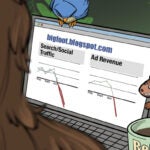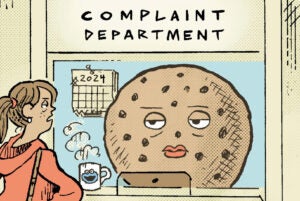“Data-Driven Thinking” is written by members of the media community and contains fresh ideas on the digital revolution in media.
Today’s column is written by Auren Hoffman, CEO at SafeGraph.
Organizations are awash in data. They are creating more and more of their own data, and they are now starting to buy increasing amounts of external data through the rise of Data-as-a-Service (DaaS) companies, which I explored in the recent DaaS Bible and a series of tweetstorms discussing the economics and operations of data companies.
Organizations need help managing their own data, and they also need help bringing in new external data. This is creating huge opportunities for service firms that can help large organizations.
The more data an organization has, the more help it needs to make sense of the data and take advantage of its capabilities. For every $10,000 a company spends on data, it might need to spend $1 million on other services, including consulting, computing and software, to gain a deeper knowledge of the data.
Services firms, such as Accenture, KPMG and Deloitte, have historically ably helped organizations manage their own data. These consulting firms helped build tools and systems to help organizations better understand what is happening in their company.
One would think that agencies would be in a good position to help companies manage their data needs in this new world, especially in the marketing discipline. Agencies have been trusted advisers to marketers for decades.
But agencies have a huge mark against them in this new world: They are often perceived as biased in favor of their own tools, relationships and data.
In the past two decades, the strategy of most of the largest agencies has centered on becoming a full-stack solution instead of focusing on giving the very best unbiased advice to their customers. Instead of becoming more neutral, agencies became more biased.
Vendor selection should be a core competency of agencies
Selecting the right marketing technology software is really hard and extremely confusing. Anyone who has seen the LUMAscape feels an immediate dread. There are thousands of very good tools – which one is best for my organization? In what order should I implement these tools?
Should my organization have a CDP? If so, which one is best for my needs and fits with my organizational DNA?
These are the kinds of questions that agencies should be answering. And while some do a great job, most bias their recommendations to tools they own or ones with whom they have a special deal. Agencies are not focused enough on what is best for clients.
Agencies should have agency
Agencies should strive to help their clients make the best decisions. Clients deserve the very best and unbiased help.
But many clients no longer believe that agencies are actually their agents. In fact, if you polled marketers, they would universally be distrustful of their agencies. That is because instead of promoting the best solution for the client, agencies are promoting data and tools that they own.
This trust gap has allowed competing services organizations like Accenture and KPMG to steal agencies’ traditional customers. This is because Accenture and KPMG have focused on adding real value to their customers rather than on forcing customers onto their “stack.”
Bias and full-stack offerings were exceedingly good for short-term agency profits, but it came at the expense of their customers and long-term shareholders. In the last decade, you’d rather be a shareholder of Accenture over just about any agency.
WPP is one agency that is striving to be more neutral
WPP also spent decades becoming less neutral and more full-stack. Like most agencies, it suffered greatly from this strategy. And like most agencies, clients are no longer under the impression that WPP is always acting in their best interest.
But unlike most agencies, WPP, under CEO Mark Read, is actively trying to do something about it. Instead of becoming more full-stack, as many competitors are, WPP is divesting much of its full-stack capabilities. A truly neutral agency shouldn’t own Kantar, a super data company with amazing capabilities. WPP owns many great assets, and some of them would grow much faster outside of the agency umbrella.
That does not mean all agency acquisitions destroy value. Acquisitions that enhance their services offering can be extremely accretive to both the agencies and their clients.
An agency that has been successfully bucking the full-stack trend is Ovative Group in Minneapolis. This midsized agency has a reputation of actually focusing on getting the best tools for their clients – and tries to systematically remove bias from their decisions.
Agencies have an extremely important and exciting role to play in this new data-centric world.
Instead of investing in owning data companies, agencies should invest in their data science capabilities. Instead of investing in owning their own core tools, agencies should invest in helping clients pick the very best software that fits their needs.
Follow Auren Hoffman (@auren) and AdExchanger (@adexchanger) on Twitter.












